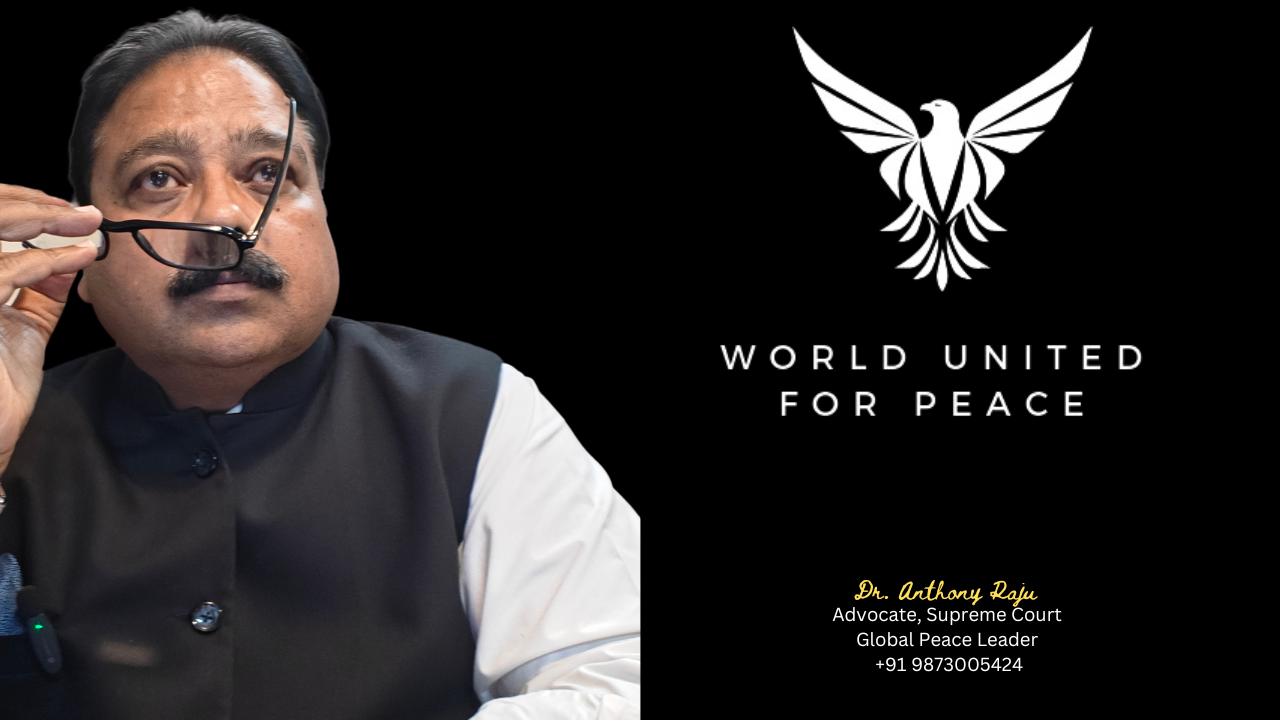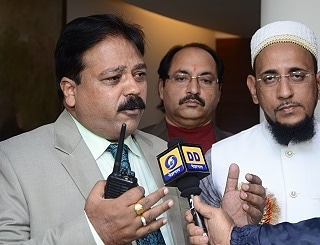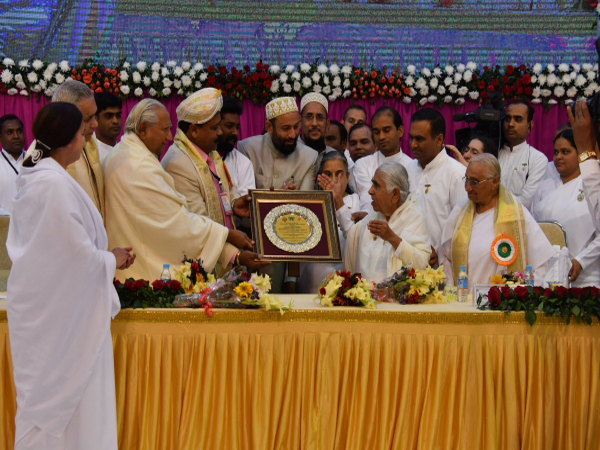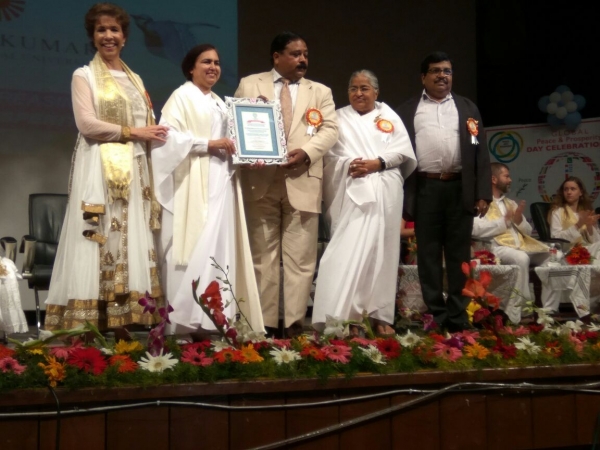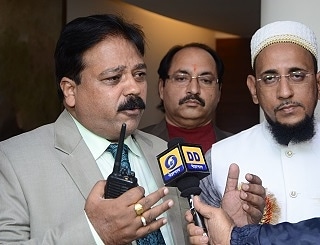
11th Global Summit on Prison Reforms’2021
Press Release
11th Global Summit on Prison Reforms’2021
Organised and Hosted by Dr. Anthony Raju, Advocate Supreme Court
& Team Human Rights
International Human Rights Advisory Council
World Interfaith Council For Peace
All India Council Of Human Rights, Liberties And Social Justice
Board Og Global Ambassadors For Human Rights And Peace
www.ihrac.org www.humanrightscouncil.in
Email: office@humanrightscouncil.org
Call or WhatsApp : +91 98 730 05424 +91 85 888 72001
Under the flagship organisation of International Human Rights Advisory Council and All India Council of Human Rights, Liberties and Social Justice
Dated 12th June’2021-06-21
Speakers focused on
Prison reform is the attempt to improve conditions inside prisons, improve the effectiveness of a penal system, or implement alternatives to incarceration. It also focuses on ensuring the reinstatement of those whose lives are impacted by crimes.
In modern times the idea of making living spaces safe and clean has spread from the civilian population to include prisons, on ethical grounds which honor that unsafe and unsanitary prisons violate constitutional (law) prohibitions against cruel and unusual punishment. In recent times prison reform ideas include greater access to legal counsel and family, conjugal visits, proactive security against violence, and implementing house arrest with assistive technology.
Most Eminent and Distinguished Speakers were…
Dr. Anthony Raju, Advocate, Supreme Court www.anthonyraju.com
Dr. June Ann, International President, www.juneann.in
Dr. Sandeep Marwah
Hon’ble Mr. Justice K.G. Balakrishnan
Former Chief Justice of India.
Former Chairperson of the National Human Rights Commission of India.
Mrs. Sutapa Sanyal,IPS
Former Director General of Police Uttar Pradesh
Motivational Speaker, Trainer
Mr. Ramesh Gupta
Sr. Advocate, Very reputed Criminal advocate
Chairman, Bar Council of Delhi
Dr. Noor Mohammad, IAS
Former Vice Chancellor, Aligarh Muslim University,
Chief Electoral Advisor to the Independent Election Commission (IEC) of Afghanistan on UNDP
Mr. Sunil Gupta, Advocate
Former, Sr. Legal Officer , Central Tihar Jail
Jail Reformer, Motivational Speaker
Dr. Parag Dewan
Founder Vice Chancellor, University of Paetroleum and Energy
Global Educationist, Motivational speaker
Dr. Ameena Ali, USA https://www.linkedin.com/in/ameenaali
Dr. Michelle Quick, Denmark
Dr. Tess Martin,Australia https://au.linkedin.com/in/tess-martin-623b64bb
Dr. Apara Thapa Bhattarai , Nepal , https://np.linkedin.com/in/apara-thapa-bhattarai-4a9aa862
Mr. Vikram Singh
Former Director General of Police Uttar Pradesh
Motivational Speaker, Trainer
Rt. Rev. George Pallipparambil SDB
The First Bishop of Miao Diocese, Assam
Mr. S K Sharma, IPS
Former, Director General of National Crime Records Bureau
Focus on…
Why promote prison reform?
Central to the arguments to promote prison reforms is a human rights argument - the premise on which many UN standards and norms have been developed. However, this argument is often insufficient to encourage prison reform programmes in countries with scarce human and financial resources. The detrimental impact of imprisonment, not only on individuals but on families and communities, and economic factors also need to be taken into account when considering the need for prison reforms.
Human rights considerations
A sentence of imprisonment constitutes only a deprivation of the basic right to liberty. It does not entail the restriction of other human rights, with the exception of those which are naturally restricted by the very fact of being in prison. Prison reform is necessary to ensure that this principle is respected, the human rights of prisoners protected and their prospects for social reintegration increased, in compliance with relevant international standards and norms.
Imprisonment and poverty
Imprisonment disproportionately affects individuals and families living in poverty. When an income generating member of the family is imprisoned the rest of the family must adjust to this loss of income. The impact can be especially severe in poor, developing countries where the state does not provide financial assistance to the indigent and where it is not unusual for one breadwinner to financially support an extended family network. Thus the family experiences financial losses as a result of the imprisonment of one of its members, exacerbated by the new expenses that must be met - such as the cost of a lawyer, food for the imprisoned person, transport to prison for visits and so on. When released, often with no prospects for employment, former prisoners are generally subject to socio-economic exclusion and are thus vulnerable to an endless cycle of poverty, marginalisation, criminality and imprisonment. Thus, imprisonment contributes directly to the impoverishment of the prisoner, of his family (with a significant cross-generational effect) and of society by creating future victims and reducing future potential economic performance.
Public health consequences of imprisonment
Prisons have very serious health implications. Prisoners are likely to have existing health problems on entry to prison, as they are predominantly from poorly educated and socio-economically deprived sectors of the general population, with minimal access to adequate health services. Their health conditions deteriorate in prisons which are overcrowded, where nutrition is poor, sanitation inadequate and access to fresh air and exercise often unavailable. Psychiatric disorders, HIV infection, tuberculosis, hepatitis B and C, sexually transmitted diseases, skin diseases, malaria, malnutrition, diarrhoea and injuries including self-mutilation are the main causes of morbidity and mortality in prison. In countries with a high prevalence of TB in the outside community, prevalence of TB can be up to 100 times higher inside the prisons. In most countries HIV infection in prisons is significantly higher than within the population outside prison, especially where drug addiction and risk behaviours are prevalent. Prison staff are also vulnerable to most of the diseases of which prisoners are at risk.
Prisons are not isolated from the society and prison health is public health. The vast majority of people committed to prison eventually return to the wider society. Thus, it is not in vain that prisons have been referred to as reservoirs of disease in various contexts.
Detrimental social impact
Imprisonment disrupts relationships and weakens social cohesion, since the maintenance of such cohesion is based on long-term relationships. When a member of a family is imprisoned, the disruption of the family structure affects relationships between spouses, as well as between parents and children, reshaping the family and community across generations. Mass imprisonment produces a deep social transformation in families and communities.
The cost of imprisonment
Taking into account the above considerations, it is essential to note that, when considering the cost of imprisonment, account needs to be taken not only of the actual funds spent on the upkeep of each prisoner, which is usually significantly higher than what is spent on a person sentenced to non-custodial sanctions, but also of the indirect costs, such as the social, economic and healthcare related costs, which are difficult to measure, but which are immense and long-term.
THE BENCHMARKS FOR ACTION IN PRISON REFORM: THE UNITED NATIONS STANDARDS AND NORMS
Key among standards and norms that relate directly to prison reform are:
United Nations Standard Minimum Rules for the Treatment of Prisoners
Body of Principles for the Protection of All Persons under Any Form of Detention and Imprisonment
Basic Principles for the Treatment of Prisoners
United Nations Standard Minimum Rules for Non-Custodial Measures (Tokyo Rules)
United Nations Rules for the Treatment of Women Prisoners and Non-custodial Measures for Women Offenders (Bangkok Rules)
Other UN instruments relevant to the prison system:
Universal Declaration of Human Rights
International Covenant on Economic, Social and Cultural Rights
International Covenant on Civil and Political Rights
The Convention against Torture and Other Cruel, Inhuman or Degrading Treatment or Punishment
Basic Principles for the Treatment of Prisoners
UN Declaration on the Protection of All Persons from Enforced Disappearance
Convention on the Elimination of All Forms of Racial Discrimination
Convention on the Elimination of All Forms of Discrimination Against Women
Code of Conduct for Law Enforcement Officials
Basic Principles on the use of Force and Firearms by Law Enforcement Officials
Safeguards guaranteeing protection of the rights of those facing the death penalty
UN Recommendations on Life Imprisonment
Basic principles on the use of restorative justice programs in criminal matters
Kampala Declaration on Prison Conditions in Africa
Arusha Declaration on Good Prison Practice
For further info: see "Compendium of United Nations standards and norms in crime prevention and criminal justice"
UNODC'S INTEGRATED AND MULTI-DISCIPLINARY APPROACH TO PRISON REFORM STRATEGY
It is of utmost importance that prison reform is not regarded in isolation from broader criminal justice reform. UNODC believes that effective prison reform is dependent on the improvement and rationalisation of criminal justice policies, including crime prevention and sentencing policies, and on the care and treatment made available to vulnerable groups in the community. Reform of the prison system should therefore always take into account the needs relating to the reform of the criminal justice system as a whole and employ an integrated, multi-disciplinary
strategy to achieve sustainable impact. Thus, reform initiatives will usually need to also encompass criminal justice institutions other than the prison service, such as the judiciary prosecution and police service, as relevant.
An integrated approach also takes account of areas that are typically not regarded as part of the "criminal justice system". These include, for example, the development of substance dependence treatment programmes in the community or psycho-social counselling programmes, to which certain offenders may be diverted, rather than being imprisoned, thus ensuring that services in prison are not overstretched, trying to meet the needs of a growing number of prisoners with special needs.
The integrated strategy to prison reform can benefit immensely from the establishment and development of collaboration and partnerships with other UN agencies and other international and national organisations engaged in complementary programmes.
THEMATIC AREAS OF WORK IN THE FIELD OF PRISON REFORM AND ALTERNATIVES TO IMPRISONMENT
UNODC's technical assistance in the area of prison reform covers the following thematic areas:
pre-trial detention;
prison management;
alternative measures and sanctions;
social reintegration.
A cross-cutting theme relevant to all prison related interventions is healthcare, including specifically the prevention, management and treatment of HIV/AIDS and drug dependency. Read more....
Pre-trial detention
There are three main issues that need to be taken into consideration in the context of pre-trial detention: firstly, pre-trial detention is overused in most countries worldwide and in many developing countries the size of the pre-trial prisoner population is larger than that of the convicted prisoner population. This situation contradicts the provisions in international standards, including ICCPR, that provide for the limited use of pre-trial detention, only when certain conditions are present. Secondly, pre-trial detention is the period most open to abuse in the criminal justice process. Recognizing the particular vulnerability of pre-trial detainees, international human rights instruments provide for a large number of very specific safeguards to ensure that the rights of detainees are not abused, that they are not ill-treated and their access to justice not hindered. Thirdly, although pre-trial detainees should be presumed innocent until found guilty by a court of law, and treated as such, conditions in pre-trial detention are often much worse than those of prisons for convicted prisoners. In addition, the lack of resources for prisons in many low-income countries means that people in detention do not have access to legal advice and assistance, with the result being that they may overstay on remand, and/or not receive a fair trial, further adding to the congestion of prisons. Therefore, improving access to justice, supporting legal and paralegal aid programmes, improving information management and cooperation between courts and prisons, to speed up the processing of cases, as well as assisting with the development of safeguards for pre-trial detainees, such as independent monitoring and inspection mechanisms, comprise important elements of UNODC's work in the field of penal reform.
Prison Management
In order for a prison system to be managed in a fair and humane manner, national legislation, policies and practices must be guided by the international standards developed to protect the human rights of prisoners. Prison authorities have a responsibility to ensure that the supervision and treatment of prisoners is in line with the rule of law, with respect to individuals' human rights, and that the period of imprisonment is used to prepare individuals for life outside prison following release. But often national legislation and rules relating to the management of prisons are outdated and in need of reform. In many countries the prison department is under the authority of police or military institutions and managers and staff have received no specific training regarding prison management. Staff morale is usually low and effective leadership to drive prison reform is lacking. Information collection and management systems are also very inadequate (or non-existent) in many prison systems worldwide, hindering the development of sound policies and strategies based on reliable, factual data. UNODC can provide much assistance in reforming national legislation, developing training programmes for prison managers to improve their leadership role and staff to apply international standards and norms in their daily practice, and by contributing to the institutional capacity building of prison administrations.
Alternative Measures and Sanctions
Overcrowding is a key concern in almost all prison systems worldwide, while punitive criminal policies, as well as a shortage of social protection services in the community, continue to contribute to the rapid growth of the prison population in many countries. As mentioned earlier, overcrowding is the root cause of many human rights violations in prisons. Solutions to overcrowding need to be explored and implemented in almost all countries in which UNODC is operational.
While overcrowding can be temporarily decreased by building new prisons, practice shows that trying to overcome the harmful effects of prison overcrowding through the construction of new prisons does not provide a sustainable solution. In addition, building new prisons and maintaining them is expensive, putting pressure on valuable resources. Instead, numerous international instruments recommend a rationalization in sentencing policy, including the wider use of alternatives to prison, aiming to reduce the number of people being isolated from society for long periods.
The use of non-custodial sanctions and measures also reflects a fundamental change in the approach to crime, offenders and their place in society, changing the focus of penitentiary measures from punishment and isolation, to restorative justice and reintegration. When accompanied by adequate support for offenders, it assists some of the most vulnerable members of society to lead a life without having to relapse back into criminal behavior patterns. Thus, the implementation of penal sanctions within the community, rather than through a process of isolation from it, offers in the long term better protection for society. Supporting the introduction and implementation of non-custodial sanctions and measures is therefore a key element of UNODC's work in the area of prison reform.
Social Reintegration
One of the principle objectives of the United Nations in the area of prison reform is to contribute to the successful reintegration of prisoners into society following their release. Social reintegration initiatives should start as early as possible within the criminal justice process in order to have maximum effect. This means that diversion from the criminal justice process (especially of vulnerable groups) to appropriate treatment programmes, non-custodial sanctions, instead of isolation from society and purposeful activities and programmes in prisons, can all be considered as elements of a comprehensive "social reintegration" policy. Interventions to support former prisoners following release from prison, continuum of care in the community for those in
need, will all be more effective if the period in prison is used to prepare a prisoner for re-entry to society. This policy requires close coordination between criminal justice institutions and social protection and health services in the community and probation services where they exist. UNODC can offer key support and advice in this area, including supporting the development of social reintegration programmes in prisons and in assisting with the planning and implementation of continuum of care and support in the community.
Healthcare
Equivalence of healthcare and the right to health is a principle that applies to all prisoners, who are entitled to receive the same quality of medical care that is available in the community. However, this right is rarely realised in prisons, where usually healthcare services are extremely inadequate. Prison health services are almost always severely under-funded and understaffed and sometimes non-existent. Most of the time under the responsibility of the authority in charge of the prisons administration, prison health services work in complete isolation from national health authorities, including national HIV and national TB programmes. Specific women's health needs are rarely addressed.
The right to health includes not only the access to preventive, curative, reproductive, palliative and supportive health care but also the access to the underlying determinants of health, which include: safe drinking water and adequate sanitation; safe food; adequate nutrition and housing; safe health and dental services; healthy working and environmental conditions; health-related education and information and gender equality.
Technical assistance provided by UNODC in this area is based on the premise that penal reform and health in prisons are interrelated, and that an integrated strategy needs to be adopted in addressing the enormous challenge of HIV/AIDS and other transmissible diseases such as tuberculosis (TB) in prison settings. Improved prison management and prison conditions are fundamental to developing a sustainable health strategy in prisons. In addition, prison health is an integral part of public health, and improving prison health is crucial for the success of public health policies.
==========================
JOIN US TODAY, MEMBERSHIP OPEN AICHLS
JOIN THE TOP AND MOST REPUTED HUMAN RIGHTS MOVEMENT OF THE COUNTRY AND
RAISE YOUR VOICE FOR THE VOICELESS PEOPLE
Top Criminal Advocate
SPEAK BEFORE APPLY FOR THE MEMBERSHIP
For more details, visit below
9873005424, 9873087903
https://humanrightscouncil.in/
https://humanrightscouncil.in/membership-form-download.php
https://www.hrcin.org/membership-form.html
http://ihrac.org/membership-form-download.php
https://twitter.com/AdvAnthonyRaju
https://www.youtube.com/channel/UCSzwkOMyFS2deOB2i7cELYQ
Email: Office@humanrightscouncil.in
ALL INDIA COUNCIL OF HUMAN RIGHTS, LIBERTIES & SOCIAL JUSTICE
(AICHLS) is founded by Dr. Anthony Raju - Advocate, Supreme Court of India, Dynamic Internationally Accredited Human Rights Defender, Inspirational, spiritual and motivational speaker, Peace Activist & Social Worker and is one of global's foremost voices of Human Rights and powerful voice for voiceless people globally.
All India council of human rights, liberties & social justice has been added as signatory to UNITED NATION GLOBAL COMPACT. The world's largest corporate responsibility initiative with nearly 12,000 business and non-business participants in 140 countries. That All India Council of Human Rights, Liberties & Social Justice (AICHLS), is a duly registered Society under the Societies Registration Act XXI of 1860, and is functioning with commitment to the Noble Cause of Human Rights Protection and Promotion, Justice for All, Economic Upliftment of the Underprivileged, Education, Love, Peace, Harmony and Friendship, National & International Integration by Exchange of Ideas & Ethos in India and also amongst the neighbouring countries and the people of the rest of the World at large.
Dr. Anthony Raju
Advocate , Supreme Court of India.
Global Chairman , All India Council of Human Rights, Liberties & Social Justice.
Chairman - National Legal Council
International Convener, Universal mission for Peace and Human Rights.
Chairman, National Council of News and Broadcasting.
Secretary General : Asian Human Rights Council
International Peace keeper
http://www.awardsforhumanrights.com/
https://www.newsindiatoday.tv/home/
https://www.linkedin.com/in/anthonyraju/
https://www.facebook.com/allindiacouncilofhumanrights/
https://plus.google.com/u/1/?tab=mX
https://www.youtube.com/user/TheHumanrightsindia/
http://www.xavierinstitutions.org/
www.asianhumanrightscouncil.org
www.internationalhumanrightscouncil.org
======================================================
In Public Interest, More Links Of Human Rights Organisation working for the promotion and protection of Human Rights.
#Tophumanrightscouncil,
#Humanrightsinindia #Socialjustice,
#freelegalhelp #Humanrightscommission,
#NationalHumanRightsCommission #HumanRightsOrganizationsInIndia,
#StateHumanRightsCommission,
#HumanRightsCommissionDelhi, #HumanRightsComplaint, #HumanRights,
#AdvocateSupremeCourt
#HumanRightsMembership #TopHumanRightsOrganisationofIndia #peace
#gahrc #humanrightseducation #humanrightsleadership #humanitarian #ihrac
#dranthonyraju #aichls #humanrightsambassador #tophumanrightsactivistinindia #topmotivationalspeaker #topinspirationalspeaker
#tophumanrightsadvocateinindia
#humanrightscommissioncomplaint #nhrc
#topcriminaladvocateinindia #tophumanrightsNGOinindia
#Administrationofjustice
#Impunity
#Refugees #IDPs & #Asylumseekers
#Arbitraryarrest
#Independenceofjudges&lawyers
#Righttoeducation
#Castebaseddiscrimination
#Prosecutionsystem
#Righttoairtrial
#Childrights , #ChildAbuse
#InhumandegradingTreatment
#Righttofood
#Judicialsystem
#Corruption
#Institutional reform
#Righttohealth
#Deathincustody
#Righttolife
#Deathpenalty
#Labourrights


